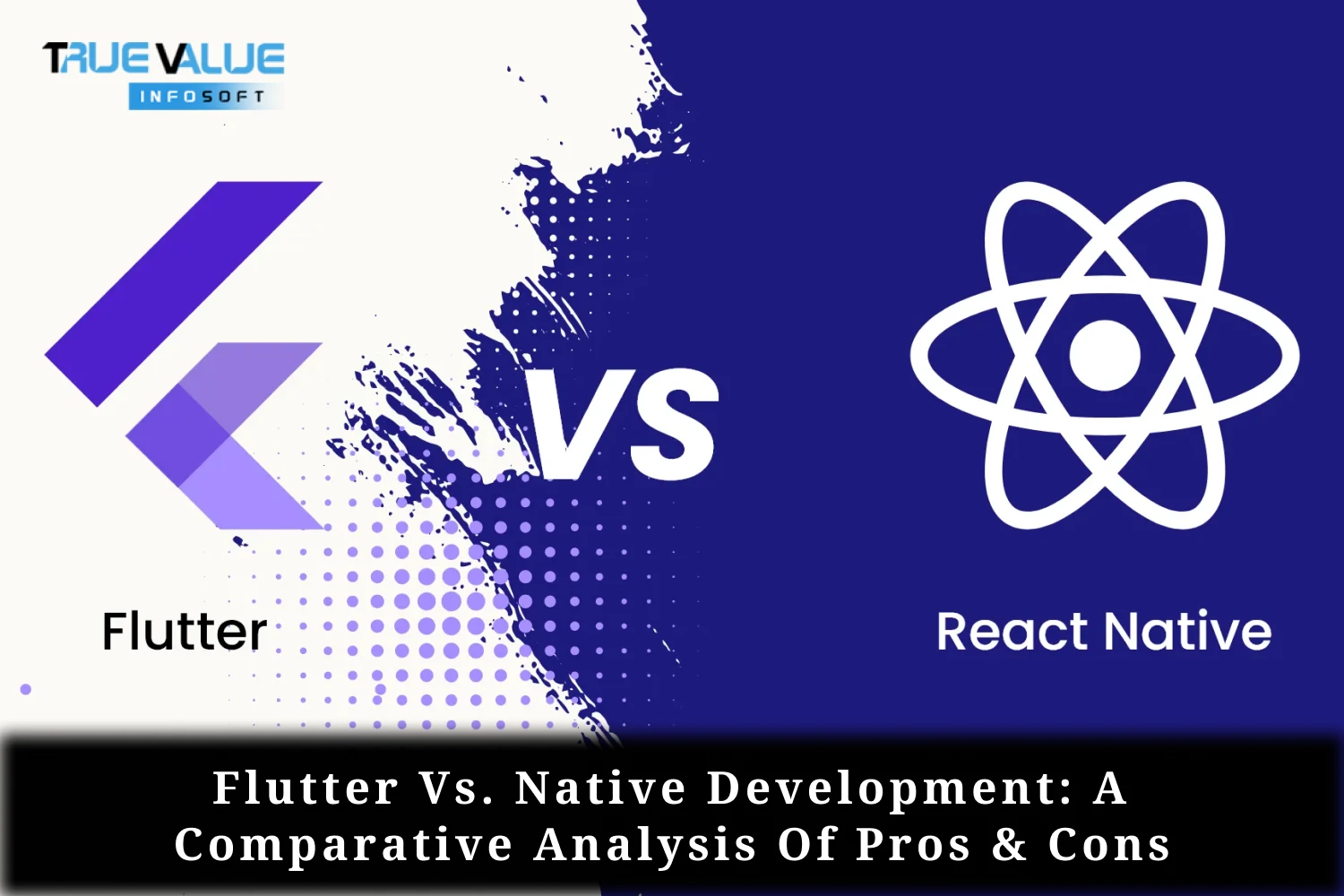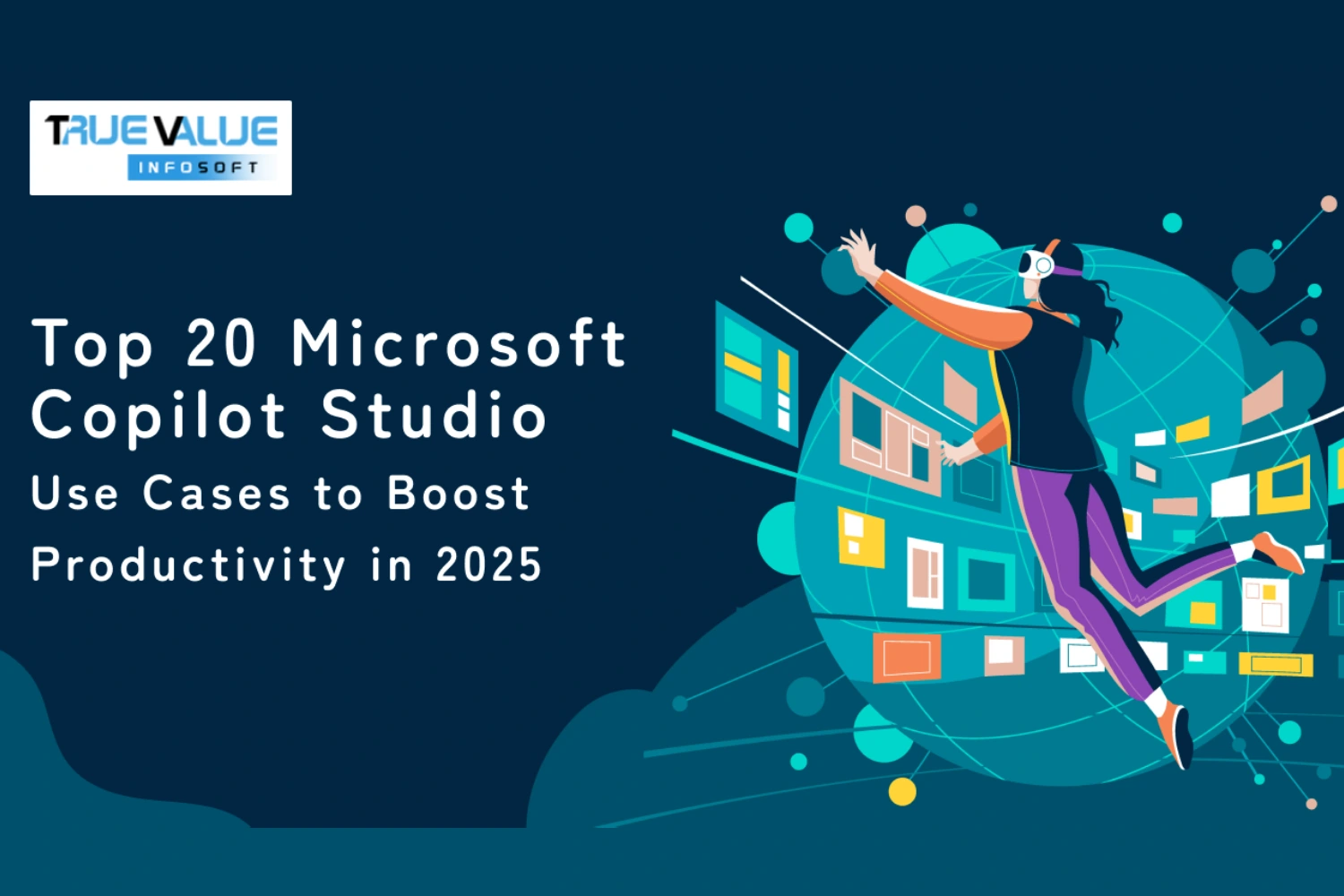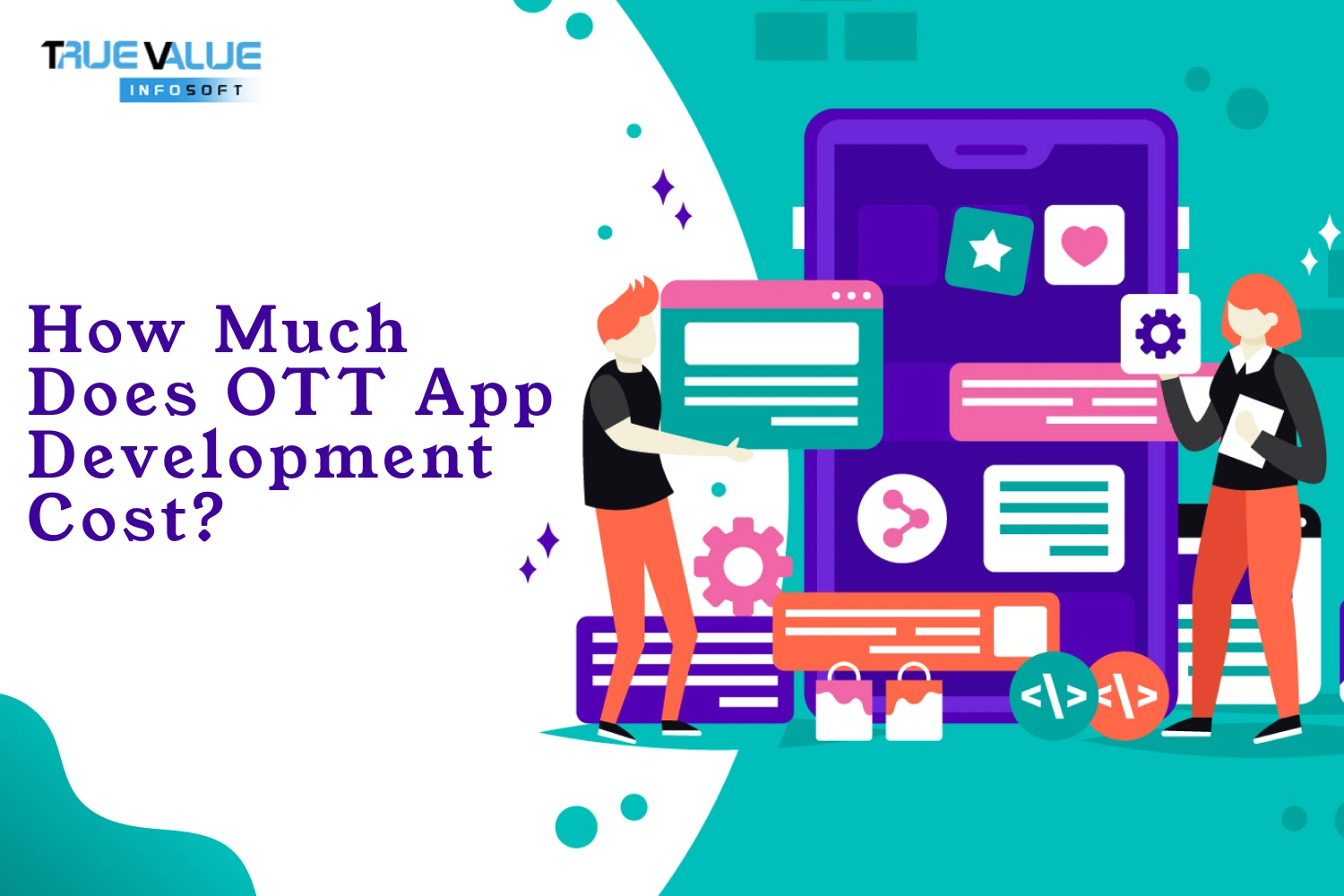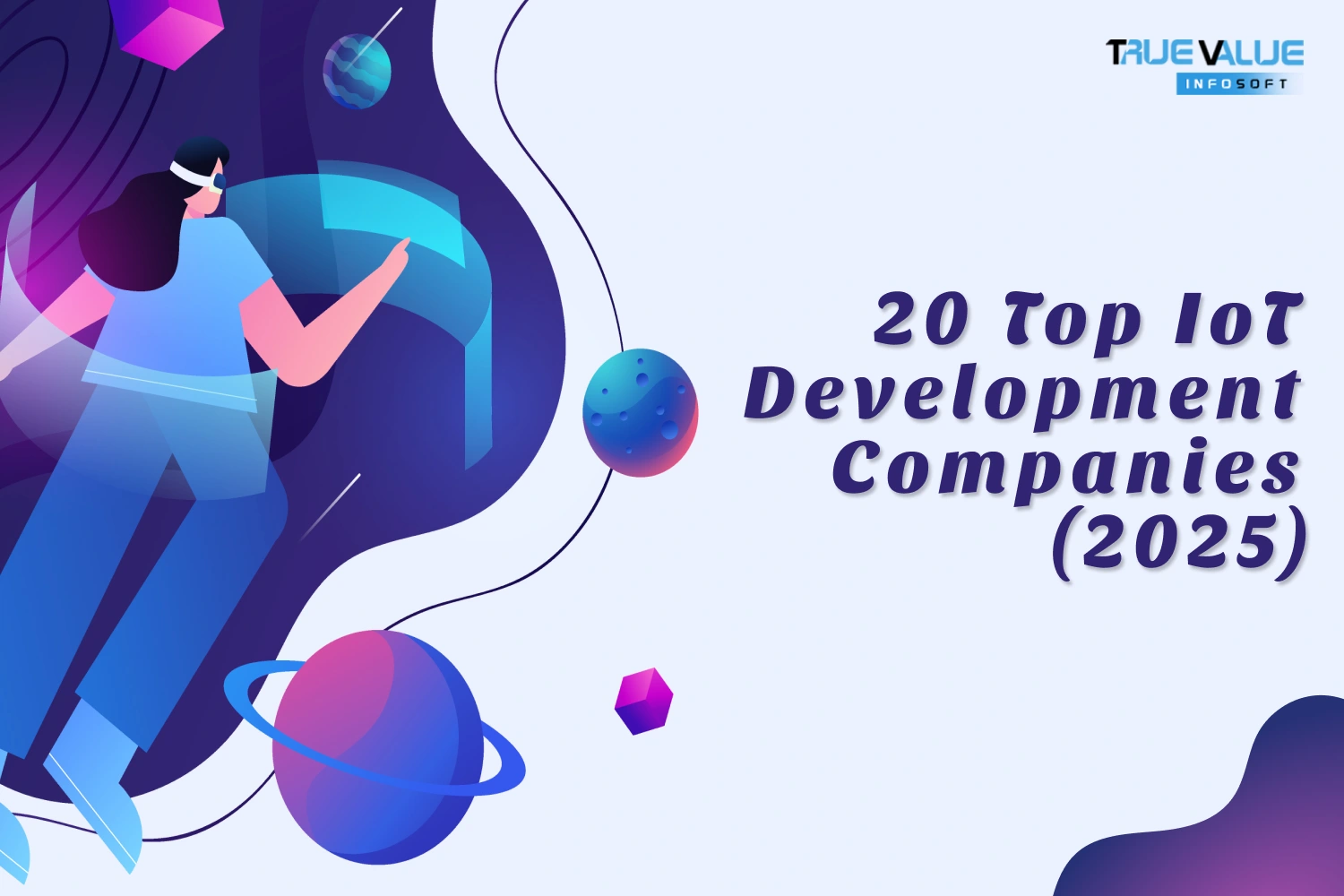Introduction
Have you ever wondered whether to build your mobile app using Flutter or go with native development? The choice between Flutter and native development is one of the most crucial decisions businesses and developers have to make when creating an app. Both options come with their own advantages and drawbacks, and making the right decision can impact your app's performance, scalability, and user experience.
At True Value Infosoft, the best app development company in India, we specialize in both Flutter and native development, ensuring our clients get the best solutions tailored to their needs. In this article, we will explore Flutter and native development, their pros and cons, key differences, and why True Value Infosoft is your ideal partner for app development.
What is Flutter?
Flutter is an open-source UI software development toolkit created by Google. It enables developers to build natively compiled applications for mobile, web, and desktop from a single codebase. Flutter uses the Dart programming language and provides a rich set of pre-designed widgets, allowing for fast and expressive UI development.
Key Features of Flutter:
- Single codebase for multiple platforms (iOS, Android, Web, Desktop)
- Uses Dart programming language
- High-performance rendering engine (Skia)
- Hot Reload for faster development
- Rich set of customizable widgets
What is Native Development?
Native development refers to building mobile applications specifically for a particular operating system—iOS or Android—using their respective programming languages and frameworks.
Key Features of Flutter:
- For Android: Java or Kotlin using Android Studio
- For iOS: Swift or Objective-C using Xcode
Native apps are optimized for the specific platform, offering high performance and a seamless user experience.
Key Features of Native Development:
- Platform-specific development
- Optimized performance
- Direct access to native APIs
- Highly customizable UI/UX
Pros and Cons of Flutter
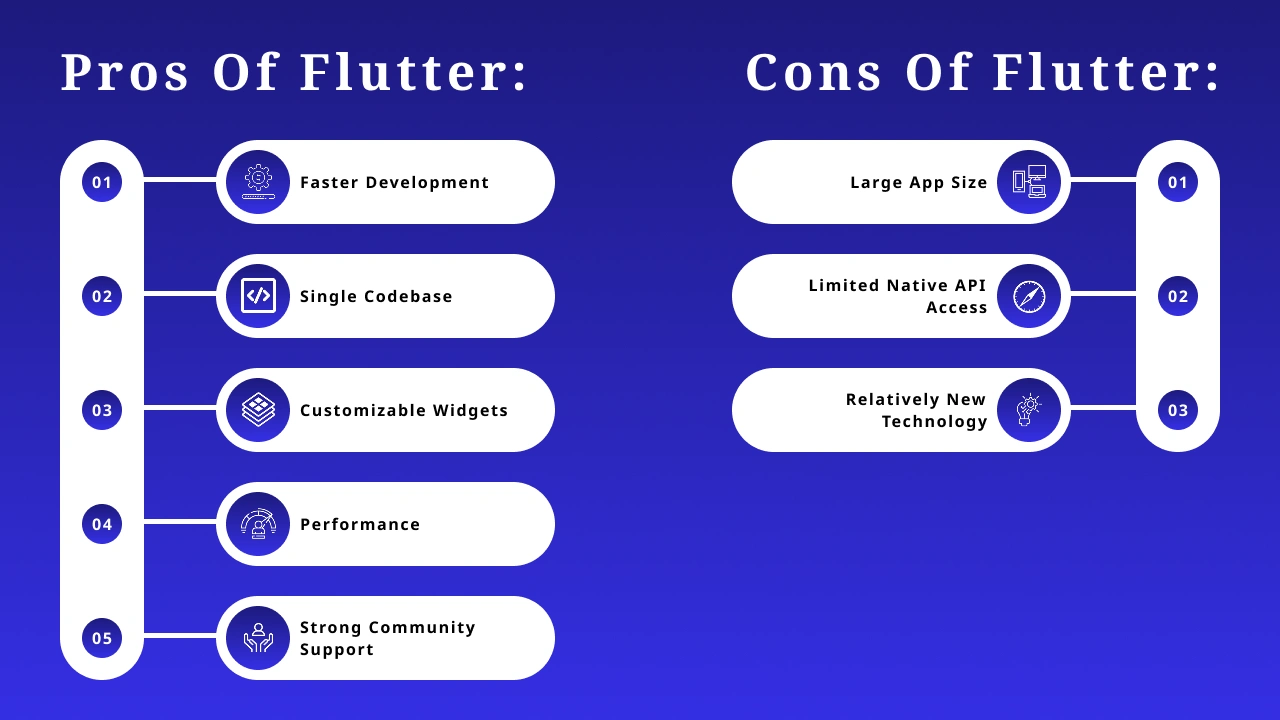
Pros of Flutter:
- Faster Development – Flutter’s hot reload feature allows developers to make changes and see results instantly.
- Single Codebase – Developers can write one codebase and deploy it across multiple platforms, reducing time and effort.
- Customizable Widgets – Provides a rich collection of pre-designed and custom widgets for a seamless UI.
- Performance – Uses a high-performance rendering engine for smooth animations and fast performance.
- Strong Community Support – Backed by Google, with growing developer support and regular updates.
Cons of Flutter:
- Large App Size – Flutter apps tend to be larger in size compared to native apps.
- Limited Native API Access – Some native functionalities require third-party integrations or custom platform-specific code.
- Relatively New Technology – Though growing fast, it still lacks some advanced native features compared to mature native development tools.
Pros and Cons of Native Development
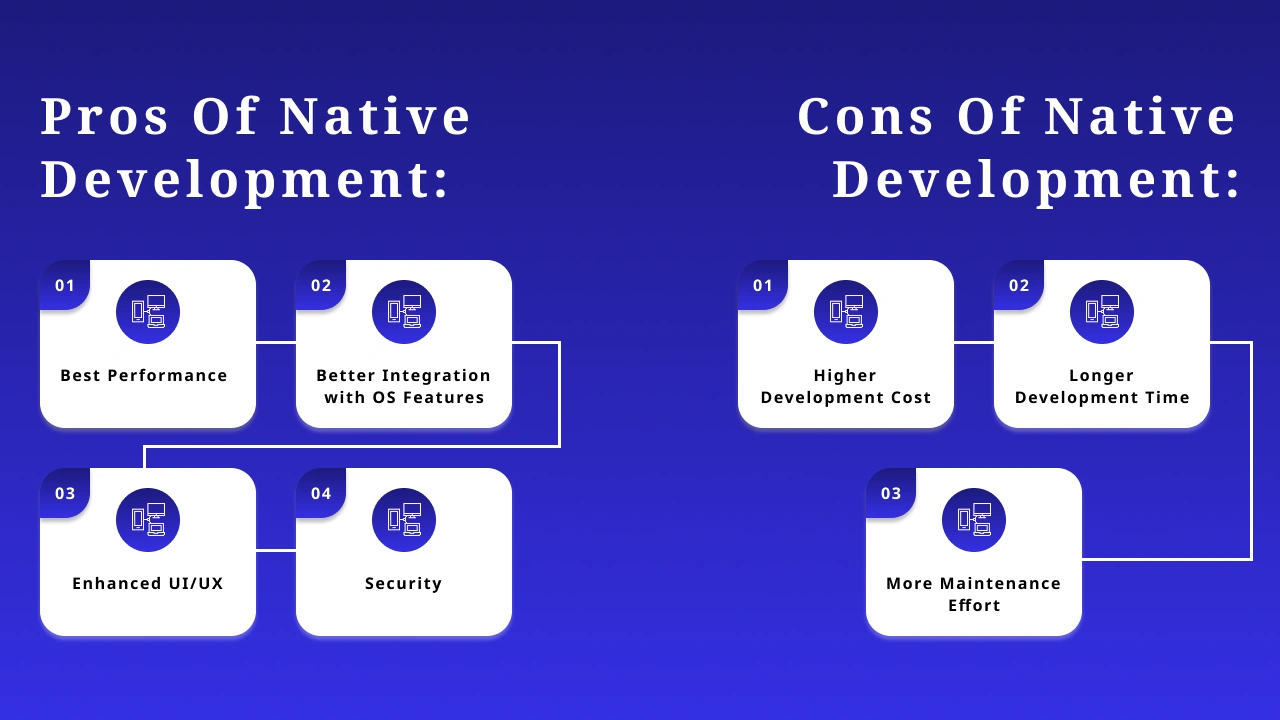
Pros of Native Development:
- Best Performance – Native apps offer high-speed execution and smooth animations.
- Better Integration with OS Features – Allows direct access to hardware and platform-specific features like camera, GPS, and sensors.
- Enhanced UI/UX – Provides the best user experience as the UI is optimized for each platform.
- Security – More secure than cross-platform solutions due to better encryption and built-in security features.
Cons of Native Development:
- Higher Development Cost – Separate codebases for iOS and Android increase costs and development time.
- Longer Development Time – Writing and maintaining different codebases can slow down the development process.
- More Maintenance Effort – Updates and bug fixes need to be done separately for each platform.
Comparison: Flutter vs. Native Development
Gemini 2.5 vs. OpenAI’s GPT-4
While OpenAI’s GPT-4 is a powerful model, Gemini 2.5 introduces several unique advantages:
| Feature | Flutter | Native Development |
|---|---|---|
| Performance | High but slightly less than native | Best possible performance |
| Development Speed | Faster due to single codebase | Slower due to separate codebases |
| UI Customization | Highly customizable with widgets | Fully customizable but requires more effort |
| App Size | Larger than native apps | Smaller, optimized app size |
| Maintenance | Easier due to one codebase | More effort required due to separate platforms |
| Community Support | Growing community backed by Google | Strong support with well-established tools |
| Best for | Startups, MVPs, cross-platform apps | High-performance, complex applications |
Why Choose True Value Infosoft for Flutter and Native Development?
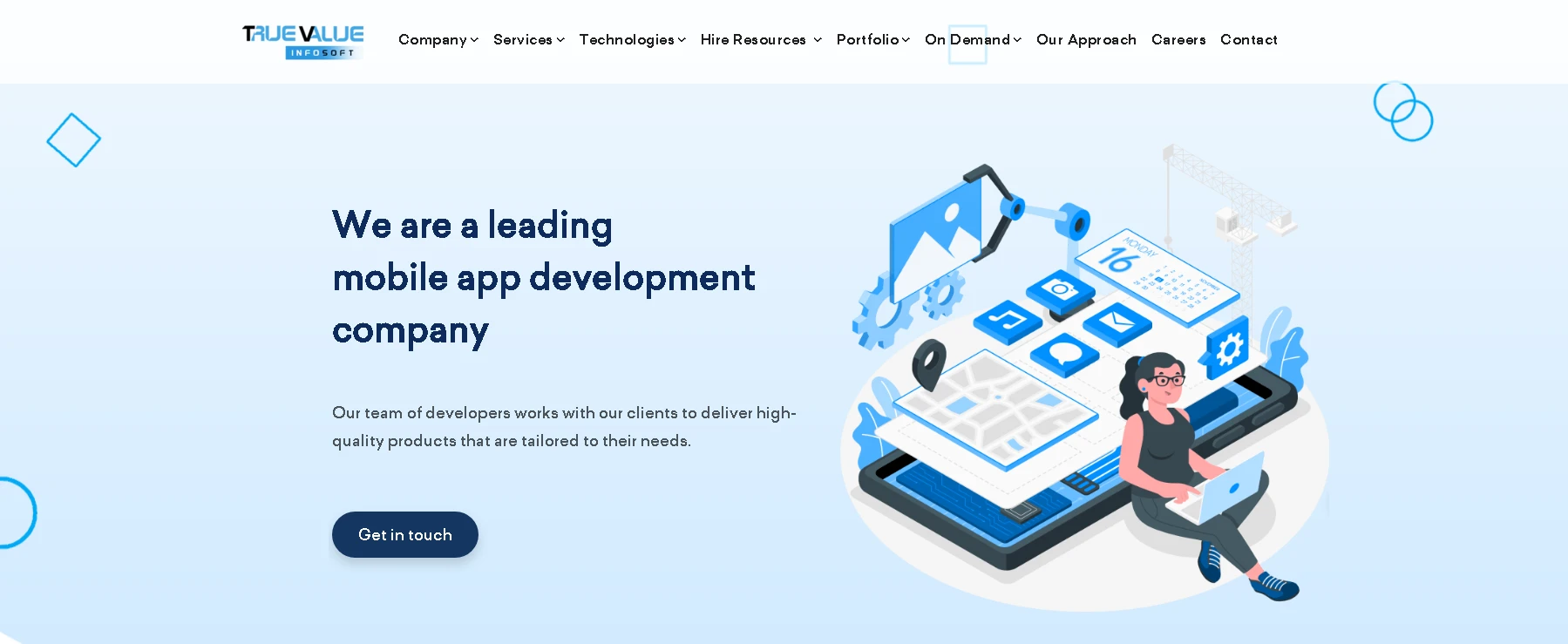
At True Value Infosoft, we take pride in delivering top-notch mobile app development services tailored to your business needs. Here’s why we stand out:
- Expert Developers – Our skilled team has extensive experience in both Flutter and native development.
- Cost-Effective Solutions – We offer high-quality services at competitive prices.
- Timely Delivery – Our streamlined development process ensures quick turnaround times.
- Seamless UI/UX Design – We craft engaging and user-friendly interfaces.
- End-to-End Support – From consultation to deployment and maintenance, we provide full-cycle development services.
Conclusion
Both Flutter and native development have their unique advantages and challenges. While Flutter offers faster development and cross-platform compatibility, native development provides optimal performance and deep OS integration. Choosing between them depends on your project requirements, budget, and target audience.
At True Value Infosoft, the best app development company in India, we ensure that your app is developed using the best-suited technology to achieve the highest quality and performance. Whether you need a Flutter-based cross-platform app or a native solution for iOS and Android, we have the expertise to deliver exceptional results.
FAQs
It depends on your project. Flutter is ideal for cross-platform apps with faster development time, while native development is best for high-performance applications.
Yes, Flutter can handle large-scale applications, but for complex functionalities, some native integrations may be required.
Flutter offers near-native performance, but for resource-intensive applications, native development still has the edge.
Yes, it is possible to migrate a native app to Flutter, but it requires rewriting the app using Flutter’s framework.
True Value Infosoft provides expert Flutter and native development services, ensuring high-quality, scalable, and cost-effective app solutions tailored to your needs.
